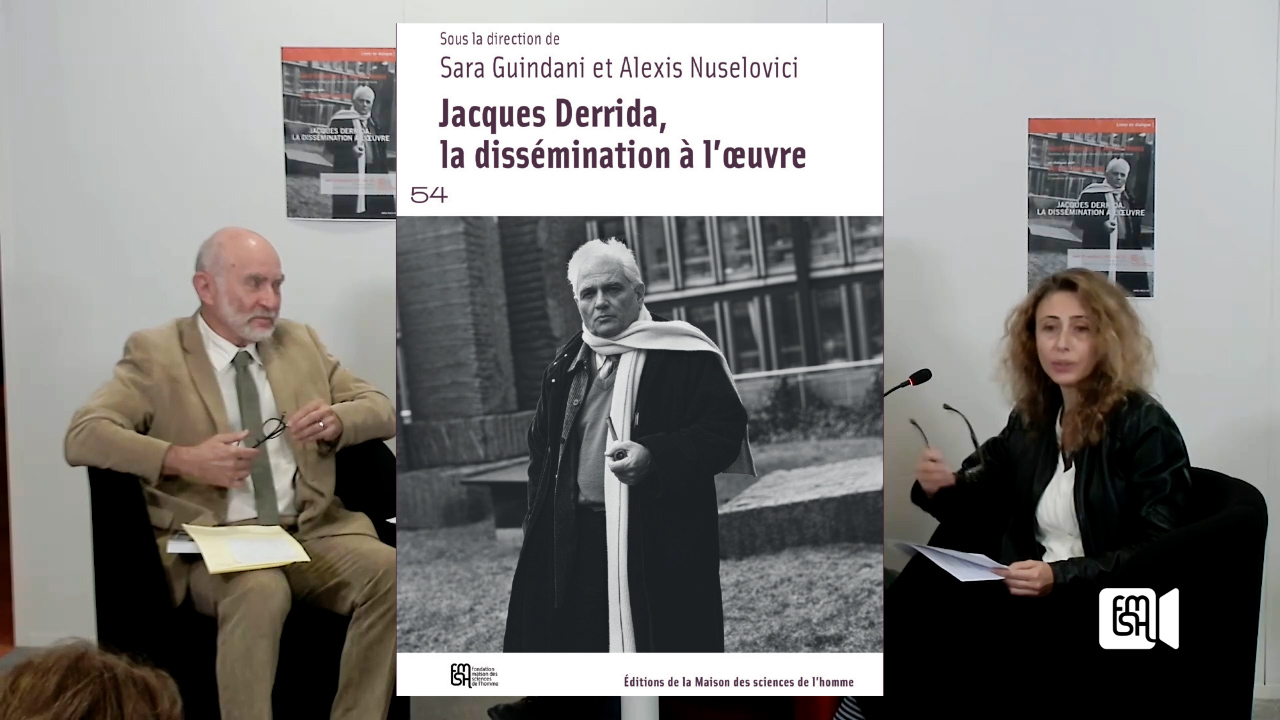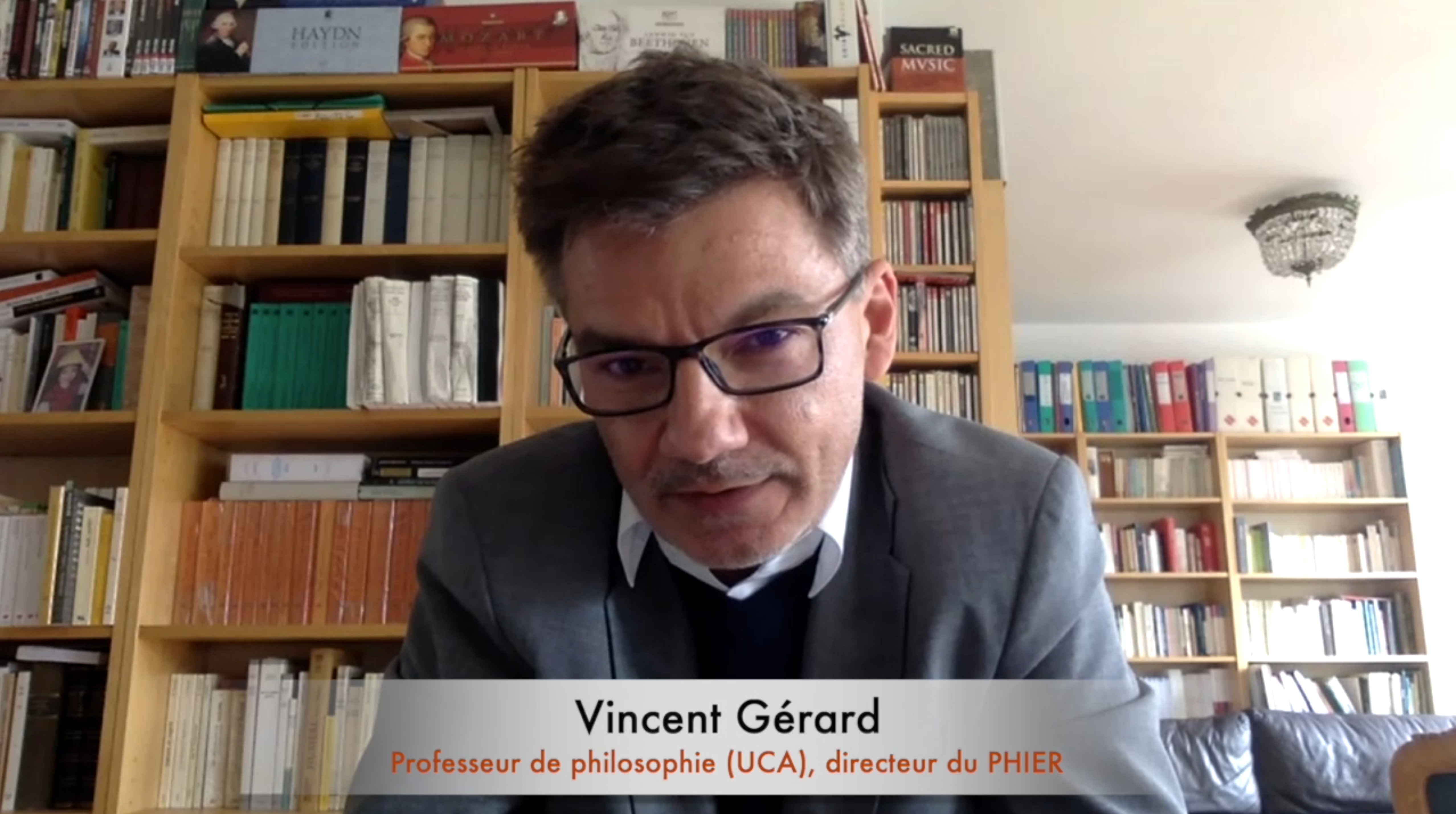Notice
Reasoning as a Social Activity
- document 1 document 2 document 3
- niveau 1 niveau 2 niveau 3
Descriptif
La sagesse collective : principes et mécanismes
Colloque des 22-23 mai 2008, organisé par l'Institut du Monde Contemporain du Collège de France, sous la direction du Professeur Jon Elster.
Intervention de Dan Sperber et Hugo Mercier, CNRS, Institut Nicod, 23 mai 2008
Some forms of collective opinion fixing or decision making – through polling or voting for instance – require little use of higher cognitive capacities on the part of most of the agents involved. Others forms, those involving debating in particular, require much more: agents have to reason in order to produce arguments and evaluate the arguments of others. Reasoning is generally viewed as primarily a means to enhance individual cognition. Much work in the psychology of reasoning focuses on its flaws and biases and suggests that these may have cumulative adverse effects when reasoning is involved in collective processes, for instance in jury deliberations.
We, on the contrary, argue, in an evolutionary and cognitive perspective, that the main function of reasoning is social: it is to evaluate the consistency of other people's claims and to try and convince them of the inconsistency of not accepting one's own claims. This argumentative theory of reasoning makes predictions regarding the contexts in which reasoning will be more felicitously used, which are argumentative contexts as opposed to individual reasoning or to conversations among people in agreement with one another. It also predicts what particular biases should emerge when reasoning is used outside of an argumentative context. These predictions are supported by many recent findings, in particular in work done on dual process models in social cognition, reasoning and decision making.
Intervention / Responsable scientifique
Thème
Documentation
Liens
Discussant : Philippe Urfalino
Télécharger la présentation PowerpointDocument .ppt (1
Avec les mêmes intervenants et intervenantes
-
Dan Sperber, Pragmatique de l'interprétation
SperberDanCHAIRE DE PHYSIOLOGIE DE LA PERCEPTION ET DE L'ACTIONM. Alain BERTHOZ, ProfesseurSéminaire 2007-2008 sous forme de colloque internationalLA PLURALITÉ INTERPRÉTATIVEFONDEMENTS HISTORIQUES ET COGNITIFS
Sur le même thème
-
L’intersciences, ou la croisée des intelligences : comment unir la puissance de l’abstraction et la…
BerthetPhilippeIntelligence, rationalité, adaptabilité sont pour l'homme question d'échelle. À l'échelle de la toile, l'espace se rétrécit et le temps s'accélère : oubliés le lent souffle des grandes découvertes,
-
SOIRÉE DE PRÉSENTATION DE L'OUVRAGE "JACQUES DERRIDA, LA DISSÉMINATION A L’ŒUVRE"
BourmeauSylvainGuindaniSaraNuseloviciAlexisÀ l'occasion de la parution de l'ouvrage Jacques Derrida, la dissémination à l'œuvre dans la collection "54", les Éditions de la Maison des sciences de l'homme organisent une soirée de
-
Comment s’orienter dans la crise ?
Proposée et organisée par la Maison des Sciences de l'Homme de Clermont-Ferrand et le PHIER, laboratoire Philosophies et Rationalités, cette web conférence, ouverte à toutes et à tous, s’est tenue le
-
Le Libéralisme dans tous ses États : Histoire de la pensée
le Libéralisme dans tous ses Etats- Histoire de la pensée
-
L'attention aux plantes ordinaires
De la forêt à la végétation urbaine, nous vivons entourés de plantes qui participent à la composition de nos mondes. Mais bien souvent, celles qui peuplent les espaces de notre vie quotidienne
-
Penser et agir avec la nature
Les études s'intéressant à l'impact de l'activité humaine sur la nature se multiplient depuis les années 60. Aujourd'hui, l'intérêt du public pour la question écologique est massif et les
-
Pourquoi philosopher sur le végétal ?
La place occupée par le végétal dans la pensée contemporaine n'a cessé de progresser ces dernières années. Les enseignements qui en découlent nous inviteraient à reconsidérer des notions telles
-
Ricoeur et le sens de l'altérité, par Olivier Abel
Parlant de la rencontre des cultures, Ricœur écrivait en 1960 : « Pour avoir en face de soi un autre que soi, il faut avoir un soi ». Entre un relativisme où il n’y a plus que des autres, et la
-
Julie Brumberg-Chaumont : "La philosophie au LEM"
La philosophie est aujourd’hui presque partout au LEM, qu’il s’agisse de la description officielle du laboratoire lui-même, où la « rationalité philosophique » et l’« interprétation philosophique »
-
Anne Lefebvre
Anne Lefebvre, CRD, ENS Paris-Saclay Après Bergson. Le devenir analogique de l’intuition ou la critique de la hiérarchisation de l’action
-
Jean-Hugues Barthélémy
Jean-Hugues Barthélémy, EA 4414 HAR, Université Paris-Nanterre La réhabilitation philosophique de l’analogie chez Simondon et le problème de la nature analogique de la philosophie
-
Carole Widmaier
Carole Widmaier, EA 2274 Logiques de l’Agir, Université de Franche-Comté Conférence introductive. Les enjeux philosophiques et politiques de la théorie simondonienne de l’analogie














